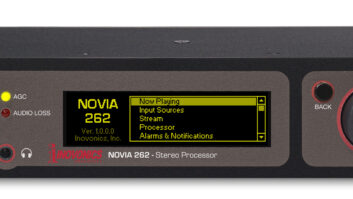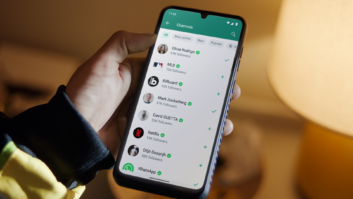The following is from the Alabama Broadcasters Association’s weekly e-newsletter, Monday Morning Coffee and Technical Notes. Thanks to ABA’s Larry Wilkins. To subscribe to the newsletter, email[email protected].
ERIC SMALL
We are sad to report that Eric Small, co-developer of the Optimod FM processor, founder of Modulation Sciences Inc., and holder of several patents, is dead at the age of 71.
On March 15, Small was leaving a Publix grocery store in Delray Beach, Fla., around 5:09 p.m., when the driver of a car lost control and accelerated towards the store. The car struck Small first and then crashed into the Publix, according to the Palm Beach Sheriffs Office report. The driver and Small were transported to Delray Medical Center, where they both died from their injuries.
WIRELESS USE ABOVE 600 MHZ
We mention last week about the discontinuance of use of frequencies above 600 MHz for wireless use. The Federal Register published a rule late last week that requires consumer disclosure, including specific consumer alert language, regarding changing requirements for selling wireless microphones operating in the 600 MHz band.
The mandated alert message is written to advise consumers that wireless microphone users must cease operations in the 600MHz band no later than July 13, 2020, or earlier if their use could interfere with wireless operations in the band.
This rule will become effective April 11.
[Read: Was the Incentive Auction Necessary?]
FM TRANSLATORS FOR AM UPDATE
AM stations that filed for FM translators in the January 2018 window, who were deemed to be”singletons,”i.e. their applications are not predicted to cause interference to any other translator applicant, must file their “long-form” applications (form 349) during a window from April 18th through May 9.
PIRATE OPERATORS — BE READY FOR MORE FINES
Pirate Radio operators continue to operate with disregard to FCC rules. The current $10,000 maximum fine for operating an unlicensed station isn’t a big enough deterrent. Now Congress is taking the first steps to boost the maximum fine for pirate radio to as much $100,000 per day, per violation with a maximum fine allowed by law of $2 million.
Under the proposal, the FCC would be required to conduct at least twice-a-year enforcement sweeps in the top five radio markets — New York, Los Angeles, Chicago, San Francisco and Dallas — for the purpose of “identifying, locating, and terminating such operations and seizing related equipment.”
And as for the rest of the year, Congress would direct the FCC that it wouldn’t be allowed to “diminish regular enforcement efforts.” And as for any equipment seized from alleged pirates, the law would give the Enforcement Bureau the authority to destroy it within 90 days from the date that it was taken away from an unlicensed broadcaster.












